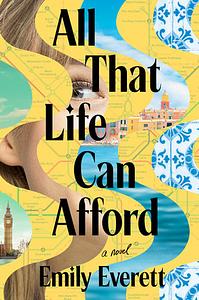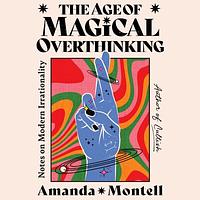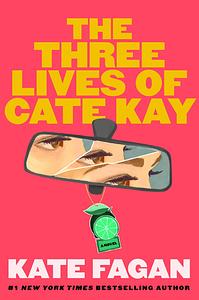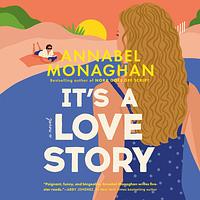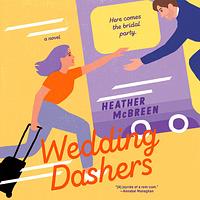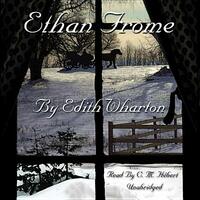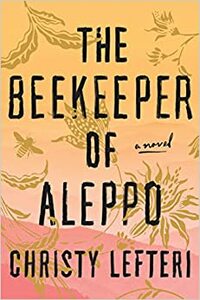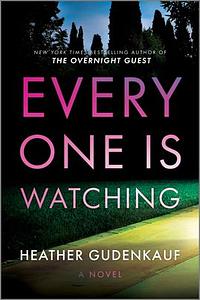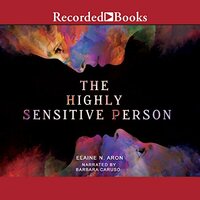You need to sign in or sign up before continuing.
Take a photo of a barcode or cover
thepassingfancy's Reviews (335)
challenging
emotional
hopeful
medium-paced
Plot or Character Driven:
Plot
Strong character development:
Yes
Loveable characters:
Yes
I really liked this one. Anna, and American student in the UK, is barely scraping by, but loved England so much that she hustles to make ends meet while working on her masters program. Along the way she gets swept up in the lives of the affluent WIlder family and can't quite resist the pull of their orbit. She lets things get away from her and makes some mistakes in her desperation to fit in and get her head above water. I loved the writing, and found this to be a rare instance of literary references being done really well. Anna truly loves literature and is desperate to stay in England, and given her youth and the glamour of the people around her, even though there were some moments of "Anna, you know that will end badly," for the most part her motives were understandable. Given some of the characterizations happening throughout the novel, there were some predictable elements, but just like Anna, I couldn't resist the allure of luxurious vacations and posh dinners among London's upper crust.
Eh, it was fine. I don't feel like I learned anything new, but I can see how it can be comforting/reassuring to be reminded that we're all just humans trying to make sense of a largely unordered and confusing world.
mysterious
reflective
slow-paced
Plot or Character Driven:
Character
Loveable characters:
No
Flaws of characters a main focus:
Yes
This book felt like a chore. The premise of a secretive author of a massively successful franchise finally revealing their identity sounded so compelling. Unfortunately, it really missed the mark for me and I really had to force myself to finish it. There were some parts that grabbed my attention, but for the most part it was just really boring. I felt like the main character was too self absored to feel much interest or compassion for her or the selfish choices she made. The format was interesting at first (different passages told from the perspective of the various bystanders in Cate's life) but that got pretty tedious over time.
informative
Honestly, it's pretty refreshing to read a book about Taylor Swift that isn't so much about Taylor Swift the person as it is about Taylor Swift the corporate mastermind. I really liked this take on Taylor's career from the persepctive of marketing and strategy. I love Taylor Swift as a songwriter and musician, but almost equally, I am fascinated by her lore- and brand-building. Over the nearly twenty years of her career she has employed (either intentionally or otherwise) brilliant tactics to engender familiarity and connection between herself and her fans. That may sound cynical, but what I appreciated about this book is that it is interested in how in some instances her marketing success was a byproduct of her true personality and devotion to her fanbase, while in others, the strategy came first. It's not an either/or situation. Taylor herself has expressed her need to be strategic in how she approaches her career, but as outlined in this book, there is always foundational humanity under the strategy. It's kind of fun to learn about different tenents of marketing, audience-building, and brand loyalty through a lens of something that is so approachable for so many people. Whether or not you're familiar with Taylor Swift's career is practically irrelevant.
First of all, this is one of the most unpleasant audiobook experiences I can remember. I truly do not understand the decisions made here. The narration can really make or break the ability of the audience to connect with a protagonist, and holy cow, did they miss the mark here. Why would you choose to narrate a romance audiobook with a constant undertone of anger? Why does the narrator sound simultaneously bored, annoyed, and smug? There was no levity or personality to Jane's characterization because the narrator sounded so miserable to be reading this book. In reading over some passages of the physical book, and having read (and loved!) previous books by this author, it seems that thinly veiled disdain was not the vibe Annabel Monaghan was going for with Jane.
All that said, this book was a real mixed bag. I really liked Dan and his family, and I loved the way the loving chaos of family life provided something for Jane that had been missing from her own life. However, the whole premise of getting Jane's former co-star to write a song being the only thing that would possibly save her movie's chances of being made seemed awfully far-fetched, when the author actually remember that plot point existed, that is. At best I was indifferent to Jane.
All that said, this book was a real mixed bag. I really liked Dan and his family, and I loved the way the loving chaos of family life provided something for Jane that had been missing from her own life. However, the whole premise of getting Jane's former co-star to write a song being the only thing that would possibly save her movie's chances of being made seemed awfully far-fetched, when the author actually remember that plot point existed, that is. At best I was indifferent to Jane.
funny
lighthearted
Plot or Character Driven:
Plot
Loveable characters:
Yes
This was cute! I went in with middling expectations, mostly anticipating a run-of-the-mill romance, but I ended up liking this book quite a bit. I appreciate a romance that lets the reader spend time with the couple together, rather than those that rely on just constantly telling us how much they like each other. Because of the forced proximity and "getting to the destination on time" plot of Wedding Dashers, we spend a lot of time with Ada and Jack as they get to know each other. There was just enough back story for the two main characters to provide some depth to the story, without the "present day" events get weighed down too much. I liked this one quite a bit.
dark
emotional
sad
fast-paced
Plot or Character Driven:
A mix
I first read Ethan Frome in an American literature class in college, and it has stayed with me ever since. At the time I was drawn to what I perceived as the romanticism of rural early twentieth century American life, as told here by Edith Wharton and elsewhere by authors like Willa Cather. This is the first time I've revisited this novel since then, and I think it struck me quite differently this time. I also recently re-read Jane Eyre, and found myself contemplating some similarities in that story, in terms of the thorny issue of the obligation one has to a marriage committment, even an unfulfilling one, and the potential for a newer, possibly happier future with someone else. Wharton takes, perhaps, a more cautionary (moralizing?) approach than Brontë did in the ultimate outcome for all the characters involved. When I read The Age of Innocence earlier this year, I was perpetually frustrated with Newland Archer's wandering affections and self-interest. Here, though, I found myself more sympathetic toward Ethan. Was that because it was easier for me to feel kindness toward Newland's young, bright fiancée than toward Ethan's critical, sickly wife Zeena? If so, what does that say about me? Ultimately, though, this story doesn't have much of a happy ending for anyone. I'm not sure what I make of it this time around, but I do still appreciate Wharton's characters and the way she invites us into their inner lives.
dark
sad
I sometimes wonder about the tendency to equate tragic stories with good writing. Am I overly critical? Am I heartless? I don't know, but there is a certain genre of fiction that for me falls into a category of "if we torture these characters enough, the readers will have no choice but to love this book because if they don't, they're monsters." This book made me feel a bit that way. I do think fiction is very important in helping readers to empathize with the plight of marginalized, overlooked, or misunderstood people. I just sometimes am less impressed with the way that is done. In thise case, we follow Syrian refugees Nuri and his wife Afra from war-torn Syria, through a refugee camp in Greece, to eventual relocation in England. On the one hand, this book did teach me more about this refugee crisis that I had previously known very little about. On the other hand, everything felt kind of gimmicky. Nuri's wife Afra is barely present in this book, and sure, it's told from Nuri's perspective, but we get barely any sense of who Afra is, beyond Nuri's descriptions of her as some perfect being of whom he is not worthy. I was frustrated every time he talked about her because she wasn't a person, she was just an idea. And the heavy-handed symbolism -- the bees are resilient and industrious; Afra the artist is blind and physically can't see the beauty around her anymore -- all just felt a bit too much. Yes, let's tell difficult stories and learn about lives unlike our own! I just didn't particularly love the way it was done here.
dark
mysterious
Plot or Character Driven:
Plot
Loveable characters:
No
I just don't know if thrillers are my genre. The premise of this sounded really interesting -- five strangers are recruited for a mysterious reality show with a multi-million dollar prize, and over the course of the book, we learn about the connections among these people and the show's mastermind. The execution fell a bit flat for me, unfortunately. I just didn't find myself particularly invested in any of the characters, even those that book clearly wanted me to root for. I could tell that the author wanted the twists and reveals to be shocking, especially as there was a "Hunger Games"-esque element to the live-streamed competition, but I just wasn't particularly interested in any of it.
Graphic: Violence
Moderate: Chronic illness, Blood, Car accident
It wasn't a particular surprise to me to that I would identify with the descriptions of highly sensitive people as outlined in this book, but it was still validating to learn that other people feel similarly overwhelmed by life. I was particularly interested in the differentiation that Elaine Aron makes between shyness and being highly sensitive, as for many HSPs their sensitivity is dismissed simply as being shy, which discounts the heightened emotional, mental, and physical sensitivity that HSPs experience. There were some elements of the book that were less interesting and I had hoped that there would have been more information or ideas about "coping" with high sensitivity. As a general overview of HSPs that helped me to feel a bit less of an outlier, I appreciated this book for what it was.
